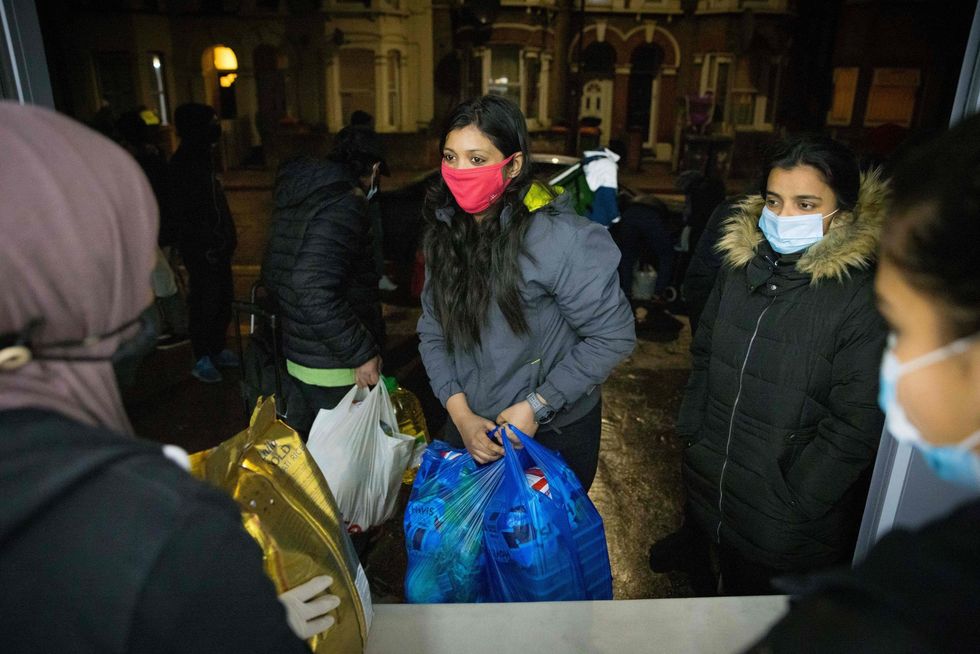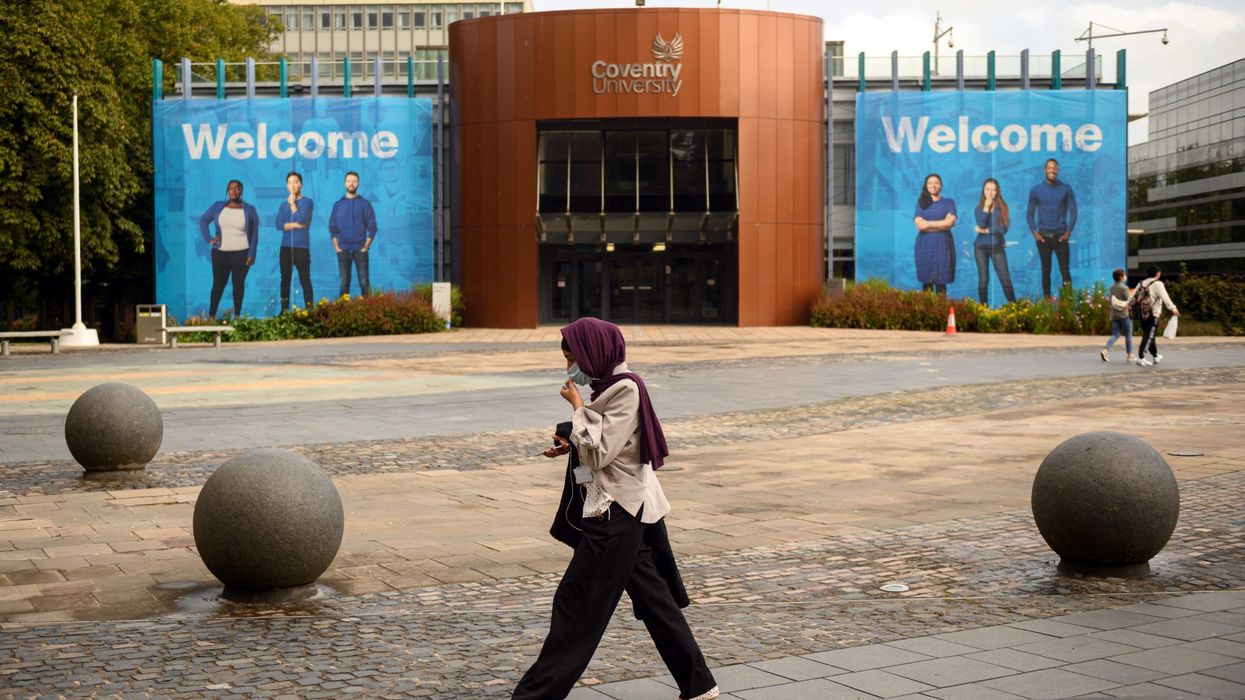Survey shows ethnic minorities among those disproportionately affected by the pandemic
A RADICAL shake-up is needed to provide more support to students suffering money problems during the Covid crisis, according to campaigners.
British Asian student leaders say ethnic minority undergraduates and postgraduates have been among the groups disproportionately affected by the pandemic.
It comes as research found that the number of people studying who were seeking extra cash doubled in 25 per cent of English universities in the past academic year. The Universities UK (UUK) survey suggests a large increase in requests between September 2020 and January 2021, during the second and third national lockdowns.
Students can apply for hardship funding direct from their universities or colleges, with many having launched emergency coronavirus financial support.

Applications from postgraduate and international students also increased because of a lack of access to maintenance support and a loss of part-time work in industries, including retail and hospitality.
Kazi Intishar, 26, is an international student from Bangladesh at the University of South Wales. He said: “I feel like the university should be more helpful in terms of finance. I am worried about seeing my family back in Bangladesh.
“I am afraid due to restrictions I might have to do a quarantine at a hotel which is very expensive.”
The University of South Wales said it is committed to reimbursing costs for overseas students in specific cases.
A spokesperson added they will cover costs for quarantining and testing for students from red list countries who are arriving to study at the University of South Wales for the first time.
Sara Khan, the National Union of Students’ (NUS) vice president for liberation and equalities, said the increase in hardship support requests is the result of “a broken system which fails all students, especially students of colour.”
She told Eastern Eye: “We know that students of colour, disabled students and working-class students have been disproportionately impacted by the pandemic, and the funding available for those hoping to access education is not designed to cover the cost of living, meaning students are under extreme financial pressure.”
Research by the NUS has shown that thousands of students have needed to access a food bank and 70 per cent said they were concerned about getting by financially. Khan said the stress over money woes is contributing to students’ “mental health crisis”.
She added: “The government must adopt a new vision for education, starting with a return to maintenance grants and bringing them in line with a real living student wage.
“They must also redress exploitative housing costs, introduce a student rent cap, scrap tuition fees and move towards the student movement’s vision of a fully funded education system before more students are priced out of education.”
The UUK research found a large proportion of the increase in requests came from those from low-income households and those paying for private accommodation that they had been unable to live in during the lockdowns.
Ifrah Farooq, the union affairs officer at the University of Bristol Student’s Union, told Eastern Eye: “We know the pandemic has had an impact on student’s finances, and there are specific groups that have been disproportionately affected.
“One of the things our SU Officer team have been advocating for throughout the pandemic is an increase in hardship funding that students can access, a simplified process for applying and for steps to be taken to ensure digital equity for those studying remotely but who can’t afford the necessary equipment.
“This year, we have had a high number of applications to our SU activity hardship fund, which supports students struggling to participate in their chosen extracurricular activities due to cost.
“Many students mentioned the impact of Covid-19 on their financial position and have had to take up part-time jobs to help cover basic costs.”
Opposition political parties have criticised the government’s handling of the financial problems suffered by students.
Matt Western MP, Labour’s shadow education minister, told this newspaper: “Students have endured two years of disrupted education and disrupted lives.
“It is hardly surprising there has been such a huge increase in students applying for hardship funding. The government needs to be looking hard at whether the money it is providing is reaching the students who need it most.”
Kishan Devani BEM, vice president of the Liberal Democrats Campaign for Racial Equality, said: “Students are another group of people the Conservatives are failing in our country, in addition to farmers, fishermen, teachers, nurses, doctors, the list could go on. We need a government that cares about the whole of society and wants to provide opportunities to all in our society.”
The government said it had made an extra £85 million available for students “in the greatest need” in 2020-21.
Universities minister Michelle Donelan said: “No student should have to worry unduly about their financial situation while they are focusing on their studies. This government made an additional £85m of funding available to universities for the 2020-21 academic year, which targeted students in the greatest need, for example those struggling with additional costs from having to maintain accommodation in more than one location due to the pandemic.
“This was on top of an existing £256m that universities could draw on towards student hardship funds.”
In November, institutions including University College London, Sheffield Hallam University and The University of Sheffield were awarded funding for projects which aim to tackle inequalities faced by BAME students to access and take part in postgraduate research.




